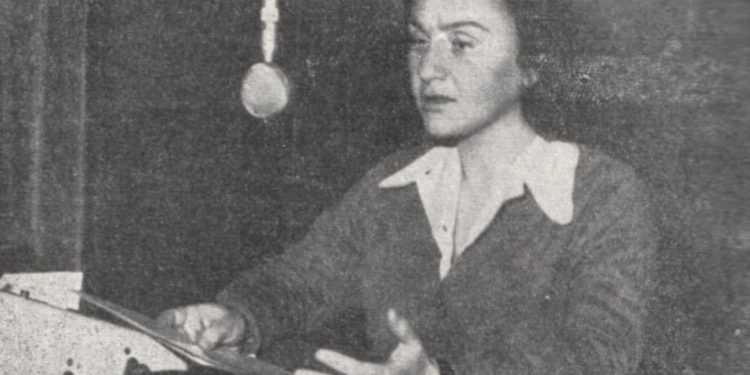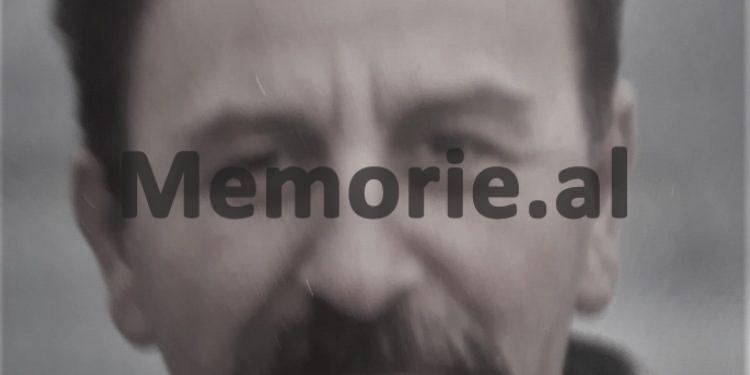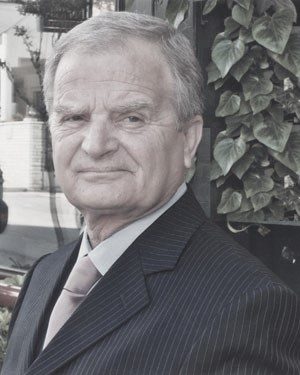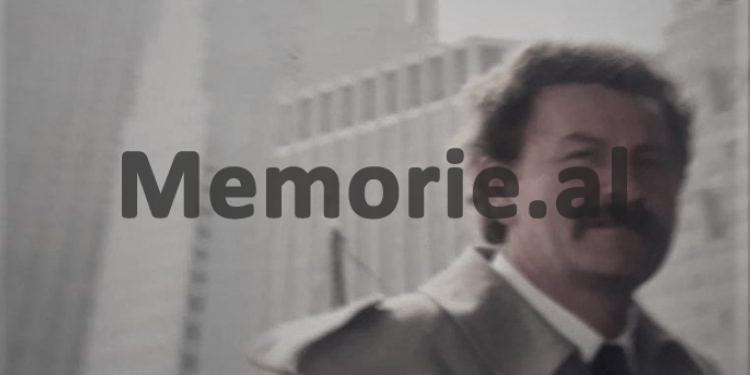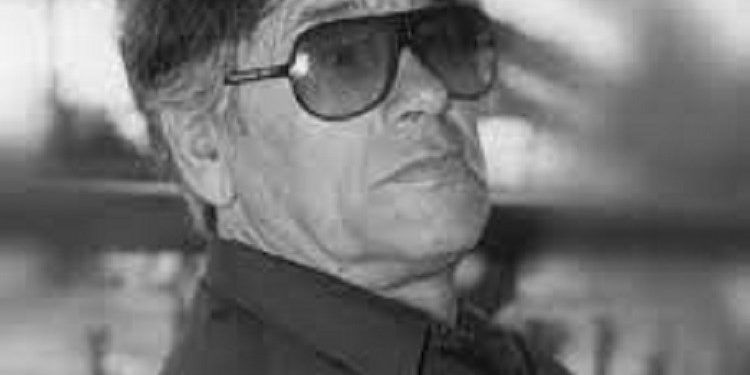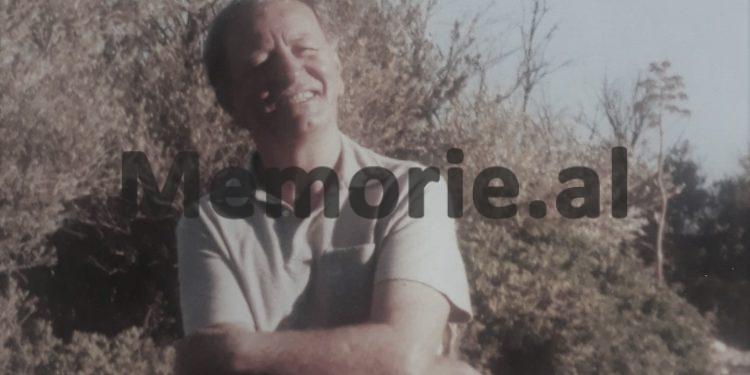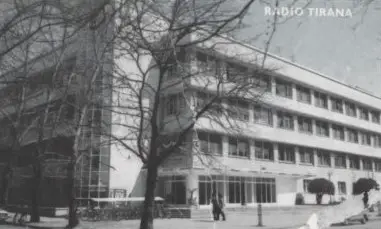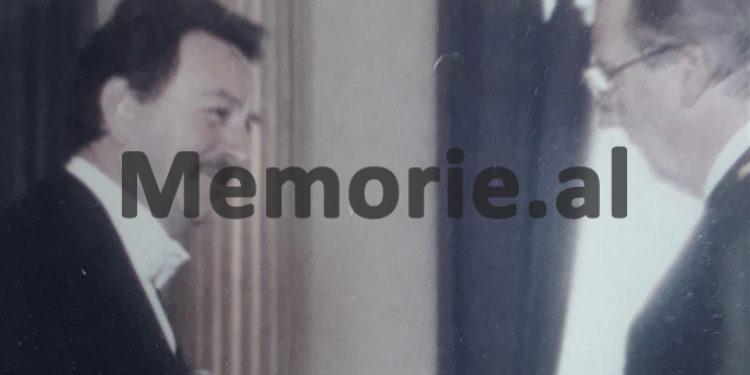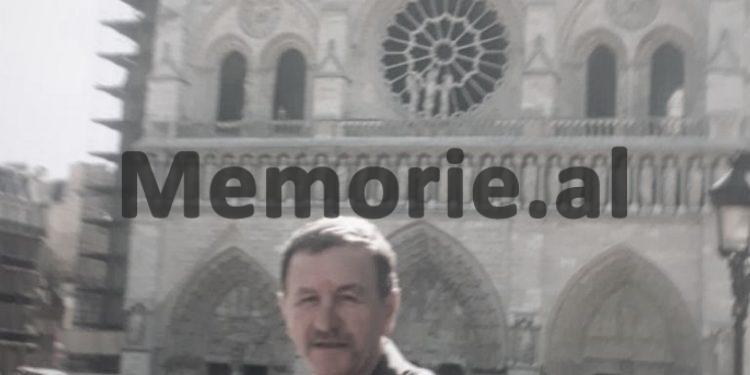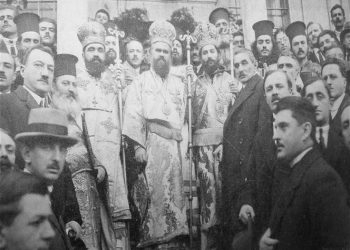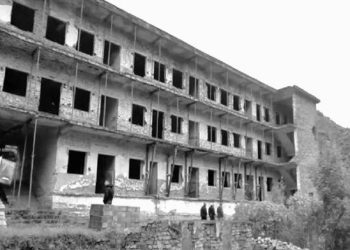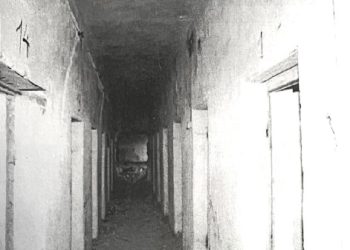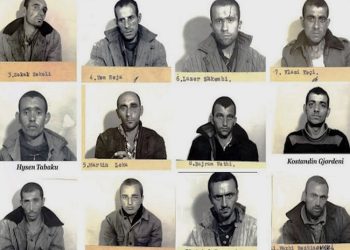By Bashkim Trenova
Part nineteen
Memorie.al publishes the memoirs of the well-known journalist, publicist, translator, researcher, writer, playwright and diplomat, Bashkim Trenova, who after graduating from the Faculty of History and Philology of the State University of Tirana, in 1966 was appointed a journalist at Radio- Tirana in its Foreign Directorate, where he worked until 1975, when he was appointed as a journalist and head of the foreign editorial office of the newspaper ‘Zeri i Popullit’, a body of the Central Committee of the ALP. In the years 1984-1990, he served as chairman of the Publishing Branch in the General Directorate of State Archives and after the first free elections in Albania, in March 1991, he was appointed to the newspaper ‘Rilindja Demokratike’, initially as deputy / editor-in-chief and then its editor-in-chief, until 1994, when he was appointed to the Ministry of Foreign Affairs with the position of Press Director and spokesperson of that ministry. In 1997, Trenova was appointed Ambassador of Albania to the Kingdom of Belgium and to the Grand Duchy of Luxembourg. Unknown memories of Mr. Trenova, starting from the war period, his childhood, college years, professional career as a journalist and researcher at Radio Tirana, the newspaper ‘Zeri i Popullit’ and the Central State Archive, where he served until the fall of the communist regime of Enver Hoxha, a period of time when he in different circumstances became acquainted with some of the ‘reactionary families’ and their sucklings, whom he described with a rare skill in a book of memoirs published in 2012, entitled’ Enemies of the people ‘and now brings them to the readers of Memorie.al
Continued from the previous issue
“Enemies of the people”
In Uznova of Berat for the military flight, where we were cut to zero because we were full of lice!
I became somewhat better acquainted with the Liberation in the early 1970s when we did a three-month military training together as reserve officers in Uznova, Berat. We slept in a large hall with 300 or 500 others gathered there from all over Albania, from the city, villages and highlands. They too were in Uznova for the same training as me and Liberation. In the dormitory the air was so heavy that to sleep it would be good to use it against the gas. Hygiene was the last concern of military unit 5458 where we were stationed. Before long, we were all covered in lice, which we humorously called “tank wards.” Without asking, they lined us all up like cattle and cut us to zero, down to the roots of our hair. We became like prisoners. In fact, even in these conditions, we did not lack humor in Uznova.
I remember one evening the command organized a drill in the dark. We marched long in the hills that surround the city of Berat. As part of the training we stayed in the Uznova cemetery, if I am not mistaken. I felt so tired that I did not hesitate to lie down on the slab of a tomb near my feet. At the end of the workout we went back to the ward and lined up in front of the canteen to have dinner. At the table, for dinner, we were always served a well-washed aluminum cup filled with lukewarm tea, a small piece of well-baked, wet bread, and a small piece of cheese, which we call “aspirin.” Entering the canteen was always accompanied by the same run from all of us. Everyone aimed to be first at the table. The first or the first had the opportunity to “inspect” the dimensions of the bread and cheese and choose the largest. This evening was no exception. Poverty and humor were plentiful at the table.
The dining table of the company I belonged to was at the end of the hall. At one point I felt like I was being hit in the distance with small pieces of bread compacted and rounded like a nut. The blows were repeated several times and, at last, I watched from afar Liberation, who was laughing out loud. In that depressed state, as I was, I did not enjoy it very much. I told him to stop. He continued his. At one point, when he had no idea, I got up, approached him and emptied my entire cup of tea on his back, in short – the dinner of that evening. Liberation was surprised, but not angry. Meanwhile, he continued to harass me, saying that I had a “Roman portrait” and that he would like to make this portrait in his studio, etc., etc.
After a few weeks, Liberation went to Tirana with a two or three day leave. By chance on the street he met our mutual friend, Rinush Idrizi. He had also told Rinushi the “story” of the tea cup. In a letter sent to me by Rinushi on March 20, 1970, Rinushi wrote, among other things: “You are having a good time and this is positive in your character. Liberation says so…. As for the tea bath, which Liberation’s back ate, it certainly testifies to the peace you have gained ». In fact, during my stay in Uznova, I was as silent as the tombstone where I lay down to rest, but I was not at all calm. A neighbor and friend of mine, Agim Tola, often shook and shook me as we stood in line in front of the canteen. “Move a little, he told me. Know that I am dying, I will die from you because I will become cancerous from your peace.” Agimi had met Enver Muçë in Tirana one day. After this meeting, I receive a letter from Enver. He wrote to me: “Gim Tola cries out that he is lucky to have a ‘mummy’ with a Caesar head, moreover in the army”!
The persecution of the Liberation, as the son-in-law of Lover Mamaqi, who was declared “enemy of the people”!
About four years later, there would be nothing left of the humor, of the joy, that Liberation found in life. In 1974 his father-in-law, Dashnor Mamaqi, a member of the Party Central Committee and Party Secretary for Tirana, would be declared an “enemy” and placed under house arrest by the dictatorial regime. In these conditions, failing to realize that now he was the “enemy”, one fine day, Dashnor Mamaqi decides to take a walk in the city. With this naivety of the Lover joined, just as naive, the Liberation. He accompanied his father-in-law on his walk, convinced that the Lover not only had not betrayed the dictator, but that he adored him. That would be enough to start his persecution. I say “to start” because, anyway, he could not escape him.
Dashnor Mamaqi’s family was interned in Tepelena labor camps. This was the fate of Sonia, the wife of the Liberation and his two daughters, one five years old and the other only 9 months old. The little girl, upon arriving at the camp, became very ill. She escaped death after Liberation took her from the camp and took her to the hospital in the city of Elbasan, where his parents were also. To save what could be saved, if indeed something could be saved, Liberation and Sonia made a tacit agreement and agreed to separate from each other.
At the High Institute of Arts, where Liberation was a lecturer, the secretary of the Institute Party, Fazlli Luarasi, called him several times to his office. In the role of investigator, he terrorized the Liberation, asking for information about Lover Mamaqi and his wife Hope. At a meeting of the collective, he was asked some 100 questions by many colleagues, who were instructed to denigrate the moral figure of Dashnor Mamaqi and his wife. “In the meeting ‘, says Çlirim Ceka in an interview he gave to the Albanian press in May 2009,’ I slapped my fist on the table when I first heard their nonsense about the degeneration and immorality of the Lover and the Hope. “Police and political staging’s, serious, dirty, to humiliate and punish an entire family. They achieved the goal and gave me the motivation that I was politically and ideologically immature and had to be educated in the working class!” Thus, during the years 1975-1985, Çlirim Ceka started working as a worker and slogan writer in the Artistic Enterprise “Migjeni”.
After the overthrow of communism in Albania, many of his wounds were never closed. Thus, the family of Çlirim Ceka, like hundreds of thousands of other families, never grew up again! Liberation in 1998 left Albania to live in Thessaloniki, Greece with two sons and a second wife, Biku Vaqarin. He is currently an independent painter, a member of SKETBE (Association of Figurative Artists of Northern Greece), which includes Greek, Russian, Dutch, Indian, etc. artists. “My family understands my desire to paint and this, says Liberation, they allowed me, so they did not force me to do hard work in Thessaloniki. I tried to help him by painting. I am grateful to him.”
A dilapidated family, a lost youth, an old man in emigration, expressing gratitude for not being “forced to do hard work”! How little deserved joy and how much undeserved pain in the life of my good friend, Çlirim Ceka! But, let’s go back to Radio Tirana where I continued working for a few more years after I returned from Berat.
Vera Zheji and other employees of Radio Tirana, “with a stain on the biography”!
There were others on Home Radio who were “biographed” and subjected to the same “natural selection.” Such was the incomparable speaker Vera Zheji.
There is not an Albanian of my generation and the generations that came after, who did not hear and admire her voice in the microphone of Radio Tirana every morning, every day, every evening for several decades in a row. Her voice quickly became popular, a family voice, penetrating our homes, almost empty, and filling the poor cultural space of the time with its characteristic, unrepeatable intonations and colors.
It happened that from time to time, a political note or a comment prepared by the journalists of the Foreign Directorate of Radio Tirana was broadcast to internal listeners. It so happened that Vera also read a political comment I wrote. It was a pleasure to hear her read. Following her on Radio, she had the impression that she knew how to increase the value of our writings, of our thoughts, even though my colleagues and I at the time were still in the early stages of journalism.
Being “affected” or “stained in the biography”, it is understood that Vera Zheji did her job and only that. When she talks about her passion she says: “My passion has been theater, which I could never realize”! Her unfulfilled dream, the roles of her heart is Brecht’s “Mother Courage” and the unfortunate Queen Gertrude in Shakespeare’s “Hamlet”.
The political shadow of their father has always weighed on Vera Zheji as well as on her two brothers. The Zheji family has been, as Vera puts it, “selected”. Vera could be a speaker at Radio Tirana, but not an actress at the People’s Theater, or any other theater. She could talk inside the walls of Radio Tirana studio, but not climb on stage. Vera Zheji calls “racism within the race, racism within the whites” what happened to the Albanians for 45 years during the dictatorship of Enver Hoxha. Her brother, Gjergji, miraculously saved them, an even crazier “selection”. I knew him when I was a pioneer and I was a member of the Young Writers circle at the Pioneer Palace.
Gjergji Zheji who would be shot by Enver’s order, with 22 others!
George had a completely different temperament from his sister, Vera. In the years 1957-1958, if I am not mistaken, he was the leader of this artistic circle. Too late, in 2002, he learns that in February 1951, by order of the dictator, he was “chosen” to be shot along with 22 other young men. All were arbitrarily accused by the State Security of dropping a bomb on the Soviet Embassy. This statement has been made in recent years in an Albanian daily by a former colonel of the State Security. The other 22 were shot. Gjergj Zheji, 23rd, escaped. He was about 20 years old at the time. “I do not know why he wanted to kill me,” said Gjergji at the age of 75-76, when he became acquainted with this shocking truth.
Vera, Gjergji and their brother Petro, were guilty only because their father, Spiro Zheji, had graduated from the Military Academy in Italy and had served as an officer of the King of the Albanians, Zog I. At the time of the occupation he was exiled with his whole family by the Italians, so he could not be accused of being an “accomplice of fascism”, as a traitor, but this fact did not matter to the communist regime. King Zog would be treated by the communist hierarchs as “satrap” and “patriot.” The officers of the Monarchy’s time were consequently in the service of a “satrapy,” or “seller homeland.” Spiro Zheji had to “pay” for this along with his children. This was the illogical logic of class warfare, which in communist doctrine is regarded as the “locomotive of history.” Gjergj Zheji also risked his life on the rails of this monstrous “locomotive”. His life would go on, as the State Security officer, mentioned above, has shown, only thanks to a coincidence and unsolicited mercy.
Director Thanas Nano, who massacred Vera Zheji!
Unlike her brother, Vera has had a “guardian angel” in difficult political moments, when the anger of the Party and its great leader was calmed only by sacrificing life on the altar of their power. It was Petro Kita, the first director of Radio Tirana, after the Liberation of the country, who kept her as a speaker; otherwise Vera would have finished a village teacher who knows where! Another “guardian angel” of summer has been Nefo Myftiu. Vera had many “guardian angels”. She had many admirers. The exception was the general director of Radio-Television, the dictator’s favorite, Thanas Nano, and some of his servile. He did not address, even once, a kind word to Vera Zheji about her work, which has left its mark even after so many decades. He also took the opportunity to take revenge on him, ordering him not to continue reading the cycle of literary and artistic shows by Vera Zheji.
After the 1990s, Vera immigrated to Greece. No one painlessly leaves his country, family, friends, comrades, a whole life even if it has been cursed. Vera, like other Albanians, took to the streets of Europe to provide their children with what they so desperately needed, a life. Her life is now divided between Albania, Greece and Germany, where her daughter and granddaughter Nadia Frenzke live. “I feel like a foreigner here, a foreigner in Greece, a foreigner in Germany. The proverb ‘better late than never’ does not go here,” Vera said in an interview with the Albanian newspaper Shekulli. You cannot help but feel sad when you hear these words, from the one who with her word on the microphone has imposed respect and love on us, who has transmitted not just a word, but knowledge and culture, the encyclopedia of her life and soul. In Albania, the President of the Republic decorates Albanian personalities with the title “Grand Master of Work”. Vera Zheji does not deserve this decoration, but she would rather go to another that does not even exist, namely the title “Grand Master of the Word” or “Great Artist of the Word”.
Vera Zheji was also invited to the ceremony organized by Radio Tirana on the occasion of her 70th birthday. The attendees, veteran employees and young people of Radio Tirana, asked you to say a few words and she, like years and years ago, said only three words: “Tirana speaks to you”! That was enough for emotions, memories, applause to fill the hall. She did this with three words and her magical voice Vera Zheji, this woman with a strong character and personality that, without a doubt, was an invaluable gift, a rare fortune for Radio Tirana, its listeners and us colleagues.
My first trip outside Albania, in France with the State Ensemble!
I save on a CD a recording of about 30 minutes with the voice of Vera Zheji. In 1980, I accompanied as a journalist a tour of the State Ensemble of Folk Songs and Dances in France. This was also my first trip outside Albania. Ten years ago, I was presented with the opportunity to take a trip to Switzerland. In early November 1970, Renée Anderson’s parents, Mr. and Mrs. Pierre Vuillemin, who lived in Lausanne, Switzerland, sent me a joint invitation with Mr. and Mrs. Edgar Noz. They invited me to the wedding of their children Vincent, Renées’s brother, with Mireille Notz, whom I never got to know. I did not even take any steps to be able, through this invitation, to travel as a bride to Switzerland. I knew this trip was impossible, completely impossible, if not, why not even dangerous. Not a few would be the question marks that the people of the dictatorship would ask simply for the fact that I had a private invitation from someone in the West!
However, I was also happy that ten years later I was given the opportunity to see another world. The tournament, in fact, was a complete success. He was filmed by Pali Kuke, the operator of the Albanian Radio-Television, at that time a young man, happy and generous, and Petraq Lubonja, the operator of the Kinostudio “Shqipëria e re”, always serious and worried about his work. After the editing was done in the studio, I was asked to write the lyrics of these films. Vera Zheji read the text I wrote about the realization of Petraq Lubonja. I’m not sure if she read the text I wrote about the realization of Pali Kukes. From time to time I hear the warm voice of Vera Zheji, coming from afar, from the years when we were still dreaming, when I on the stage of the Champs-Elysées Theater, after a false alarm about the placement of a bomb in this Theater, will I declared: “The Albanian people are not afraid, they are not afraid of bombs”! “Le Monde”, writing about this event would introduce me the next day in its publication, as “spokesperson of the State Ensemble of Songs and Dances”!
Haki Bejleri, the brilliant voice of Radio Tirana, who was barbarically fired after 30 years of work!
Haki Bejleri also offered another brilliant voice to Radio Tirana. In fact, when it comes to Vera Zheji, one cannot help but think of Haki Bejleri or vice versa. They were together for almost 30 years in the studios of Radio Tirana. Everyone probably had their admirers, but on the 20.00 news show they had to be both, the listeners loved both. Each was perfect in front of the microphone, but both added something more to that perfection. They both created a tradition, a school of the Albanian word in front of the microphone.
Of course I had “known” Haki before I started working for the Albanian Radio-Television. Always attracted by the political life of the country and the foreign one, I have always followed faithfully the shows of 20.00 of Radio Tirana and later of the Albanian Television. Hakiu stood out, especially, in reading political notes and comments. He was inaccessible in reading the communiqués and editorial articles published in the newspaper “Zeri i Popullit”. These articles contradicted what was described as modern revisionism or Khrushchevite revisionism, named after Khrushchev, the leader of the Communist Party of the Soviet Union in those years. I also remember Haki Bejler because he, in my beginnings as a journalist at Radio Tirana, read an article I had written about U Thant, the former Secretary General of the O.K.B.
I was in the newsroom and enjoyed reading it. I greeted him in the hallway when he came out of the studio and thanked him. He complimented me quite kindly on the article, adding a few words that, of course, as a young man caressed my sedra. In this article I treated the personality of U Thant, as a centrist, as not positioned, as the same opportunist who speaks in rounded words, not to tell the truth openly. It was my communist upbringing that positioned me in this way, despite the fact that I had no idea what the role of the UN Secretary General was, despite the fact that, as everywhere, even in politics, my vision was limited, I distinguished only two colors, white and black, two positions, with us or against us. U Thant, not being with us, was against, had to be hit. This is what I did in my article. Haki Bejleri, in fact, I believe congratulated me not for the content, but for the originality of the article, for a different way of writing.
Hakiu was a violinist in the orchestra of the Tirana Opera and Ballet Theater. He was also the translator of operas such as “Madame Butterfly”, “Tosca”, “Rigoleto”, “Pearl Fishermen”. He worked on the Radio as an external speaker. With an old bicycle he did not miss coming in the mornings and evenings to speak in front of the microphone of Radio Tirana, correctly just like the first day and the last one, in the cold and in the rain. He continued like this until they slammed the door in front of his face, as the insolent know how to do.
One evening, as every evening, Hakiu arrives at Radio Tirana to start his news show. The policeman at the entrance of the studio does not allow him to enter the studio as usual, as for about 30 years in a row! He carried out an order. Hakiu, when he was not more than 55 years old, had to go down the stairs to never return to the premises of Radio Tirana. He had been fired once before, but now there would be no return. He, as he was dignified in front of the microphone, left him with dignity, saying only a “good night”! That was not enough, but he was also fired from the Opera and Ballet Theater. The decision to strike him was taken somewhere high, so even taking these dimensions, it was not the decision of a vengeful director or a careless, bureaucratized directorate.
Hakiu had a brother, who was killed by partisan forces during the war as a nationalist. For this he had to pay in his youth and, after ”forgetfulness” even now, five years before he became a pensioner. In 1955, the military labor unit No. 1242 was established in Albania. In this ward were mobilized to perform compulsory military service all those boys and men, who were considered “enemies” and who were used for 2-3 years as working animals for all types of military and civilian work. This ward was like a kind of prison or gulag. His “soldiers” were dressed as if not worse, in old clothes of the Yugoslav army and later of the Russian one, with rubber bands made from truck tires. The ward or battalion consisted of three companies. The second company based in Brari quarry, at the foot of Dajti Mountain, was that of hell. He worked from 14 to 18 or 20 hours a day. The food consisted of leeks and beans. Once a week on the menu were Russian Army World War II rock biscuits that had to be broken with a beak. In the “menu” in each biscuit, 20-30 worms were “served” for free. The talented violinist, Haki Bejleri, as well as other well-known names of Albanian art and culture was sent to perform compulsory military service in this ward.
Haki was a smart man and he knew how to evaluate the regime correctly, his claws always ready to catch the “prey”, and to show the country to the enemy of the people! He could not forget the years of military service in ward 1242. Correctness was part of his nature, of his character, but it could not but reflect the occasional note of anxiety and anxiety. Hakiu, the irreplaceable speaker, who made no mistake in front of the microphone, nevertheless escaped punishment. He was not only replaced on the throne in front of the microphone, but also all his recordings disappeared from the Radio Archive because they were recordings of the enemy’s voice!
After the 1990s, Agron Çobani and Ilir Buçpapaj made a television documentary dedicated to Haki Bejler as a rare speaker on Radio Tirana. In the evening of the television broadcast, after the documentary was over, he called Agron Çobani to thank him. “You’s very proud of me,” he told her. “He deserves more,” Agron replied. Surely he deserved much more in life and not just a consolation at the end of it. /Memorie.al
The next issue follows




